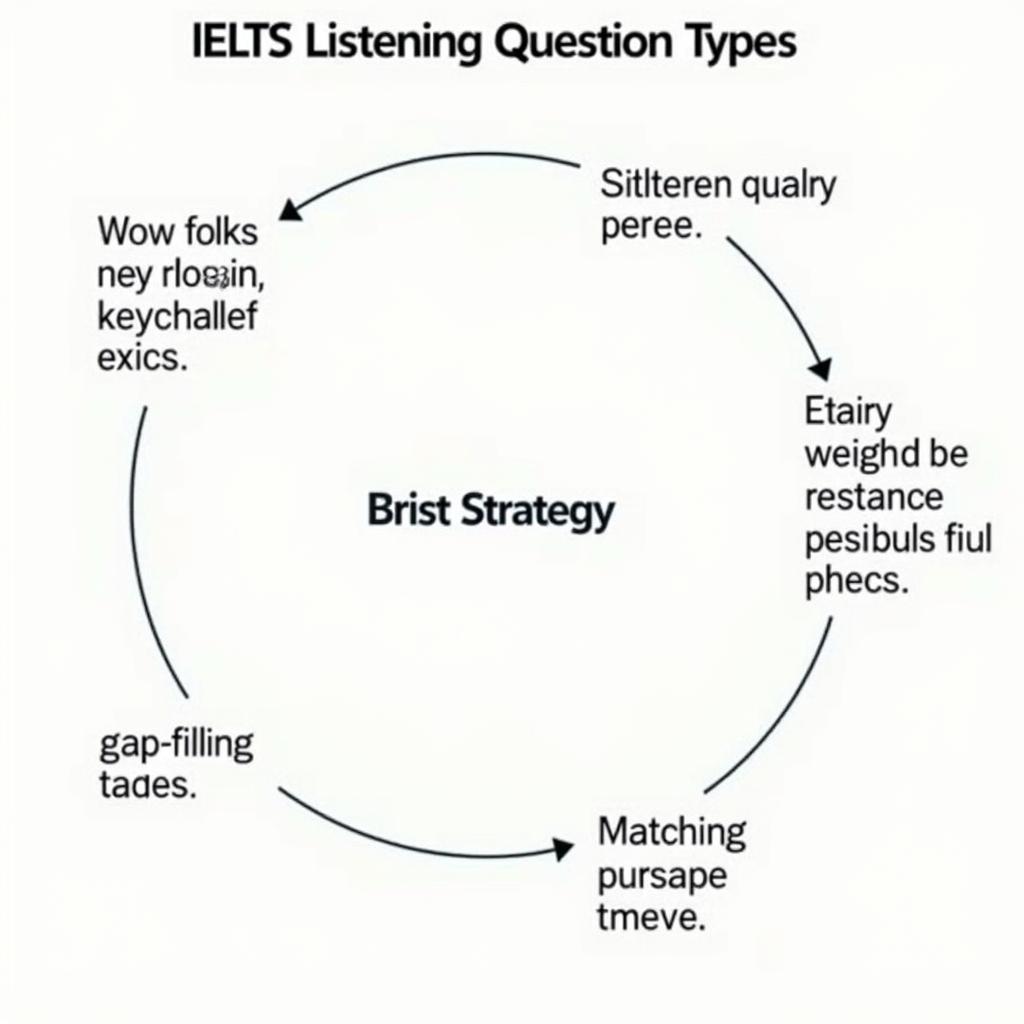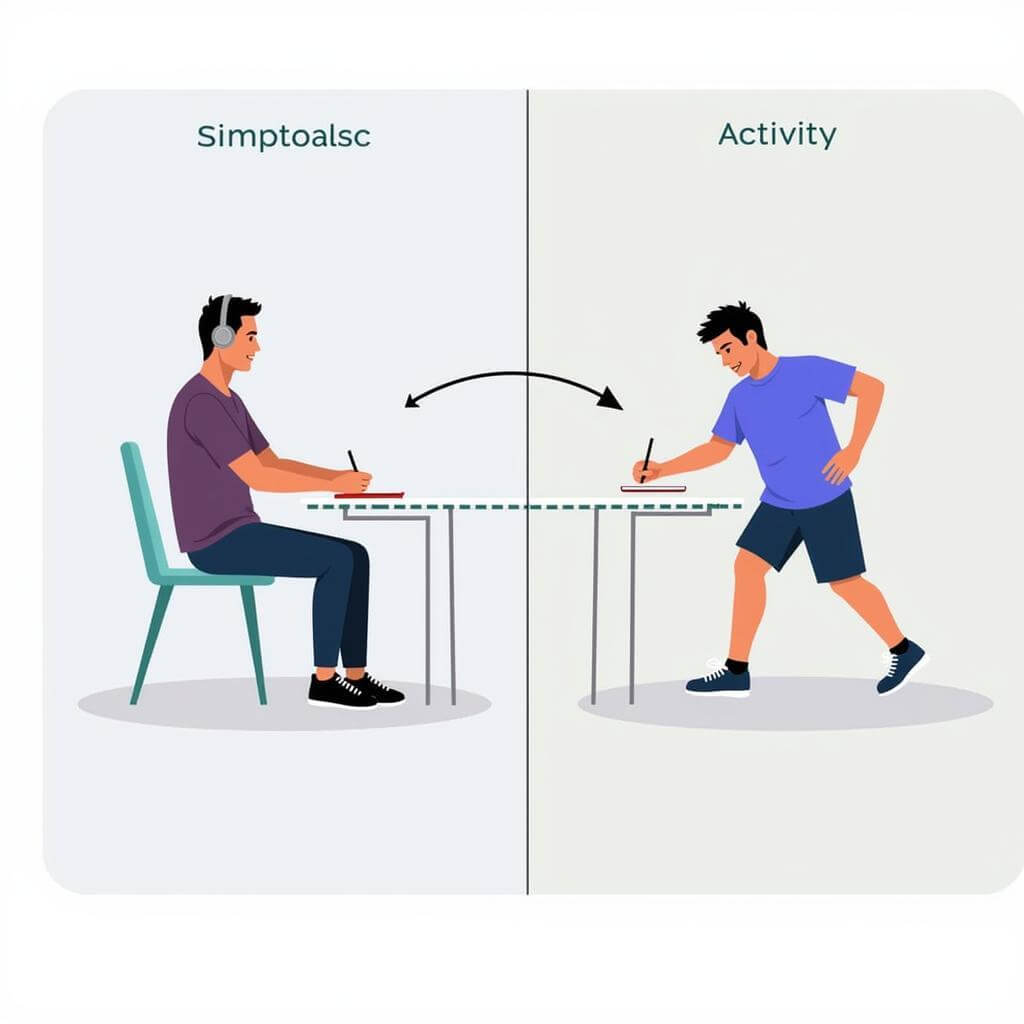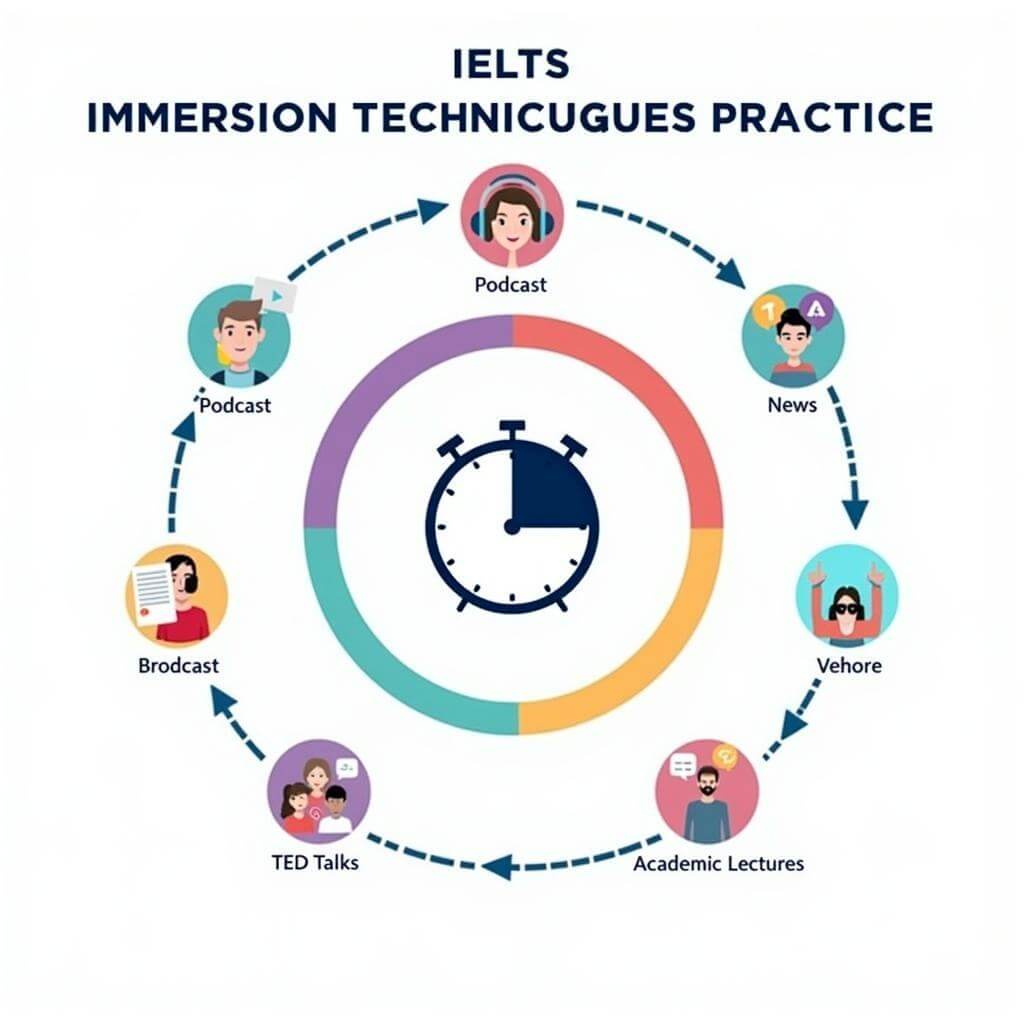Are you struggling with the IELTS Listening test, especially when it comes to understanding fast speakers? You’re not alone. Many test-takers find this aspect particularly challenging, but with the right strategies, you can overcome this hurdle and boost your score. In this comprehensive guide, we’ll explore effective techniques on how to handle IELTS listening recordings with fast speakers, helping you approach the test with confidence.
Nội dung bài viết
- Understanding the Challenge of Fast Speakers in IELTS Listening
- Common Issues Faced by Test-Takers
- Essential Strategies for Handling Fast Speakers
- 1. Develop Active Listening Skills
- 2. Improve Your Prediction Skills
- 3. Enhance Your Note-Taking Technique
- 4. Familiarize Yourself with Different Accents
- 5. Improve Your Vocabulary and Idiom Knowledge
- Advanced Techniques for Mastering Fast Speech in IELTS Listening
- 1. Train Your Ear with Gradually Increasing Speed
- 2. Focus on Connected Speech and Elision
- 3. Develop Strategies for Specific Question Types
- 4. Practice Active Reconstruction
- 5. Utilize Technology for Targeted Practice
- Overcoming Mental Barriers and Building Confidence
- Practical Tips for Test Day
- Conclusion: Embracing the Challenge of Fast Speakers in IELTS Listening
- Frequently Asked Questions
- How fast do speakers talk in the IELTS Listening test?
- Can I ask the examiner to repeat the audio if I don’t understand?
- Are there specific sections in IELTS Listening where speakers tend to talk faster?
- How can I improve my concentration for long listening passages with fast speakers?
- Is it better to guess an answer or leave it blank if I miss information due to fast speech?
- How much time should I dedicate to practicing listening with fast speakers?
Understanding the Challenge of Fast Speakers in IELTS Listening
Before diving into strategies, it’s crucial to understand why fast speakers pose a challenge in IELTS Listening. The test is designed to assess your ability to comprehend spoken English in various contexts, including conversations with native speakers who may speak at a rapid pace.
Dr. Emma Thompson, a renowned IELTS expert with over 15 years of experience, explains: “Fast speech in IELTS Listening tests not only your comprehension skills but also your ability to process information quickly. It’s a reflection of real-life scenarios where native speakers often speak at a natural, rapid pace.”
Common Issues Faced by Test-Takers
- Missing key information
- Difficulty in keeping up with the audio
- Stress and anxiety leading to reduced focus
- Misinterpreting words due to connected speech
To tackle these challenges effectively, let’s explore some proven strategies.
Essential Strategies for Handling Fast Speakers
1. Develop Active Listening Skills
Active listening is crucial when dealing with fast speakers. This involves not just hearing the words, but actively engaging with the content.
- Focus on the overall message rather than every single word
- Pay attention to stress and intonation for clues about important information
- Practice identifying key words in IELTS listening to grasp the main ideas quickly
2. Improve Your Prediction Skills
Prediction is a powerful tool in IELTS Listening, especially with fast speakers.
- Read questions beforehand to anticipate the information you need
- Use context clues to predict potential answers
- Practice guessing what might come next in various types of conversations
 Improving prediction skills for IELTS Listening
Improving prediction skills for IELTS Listening
3. Enhance Your Note-Taking Technique
Effective note-taking can be a game-changer when dealing with rapid speech.
- Develop a personal shorthand system for quick note-taking
- Focus on recording key information rather than full sentences
- Practice note-taking while listening to fast-paced audio materials
4. Familiarize Yourself with Different Accents
IELTS Listening often features speakers with various accents. Exposure to different accents can significantly improve your ability to understand fast speech.
- Listen to podcasts, news broadcasts, and interviews from different English-speaking countries
- Practice managing listening for varied accents to improve your overall comprehension
5. Improve Your Vocabulary and Idiom Knowledge
A strong vocabulary base can help you understand fast speech more easily.
- Learn common idioms and expressions used in everyday English
- Focus on vocabulary related to typical IELTS Listening topics (e.g., education, work, social issues)
- Practice using new words and phrases in context
Advanced Techniques for Mastering Fast Speech in IELTS Listening
1. Train Your Ear with Gradually Increasing Speed
Start with normal-paced audio and gradually increase the speed as you improve.
- Use audio editing software or apps to speed up recordings
- Practice with TED Talks or audiobooks at various speeds
- Challenge yourself with increasingly difficult listening materials
2. Focus on Connected Speech and Elision
Understanding how words blend together in fast speech is crucial.
- Study common patterns of connected speech (e.g., linking, assimilation)
- Practice identifying words in fast sentences where sounds are omitted or changed
- Listen for reduced forms of common words and phrases
3. Develop Strategies for Specific Question Types
Different question types require specific strategies, especially with fast speakers.
- For multiple-choice questions, quickly eliminate obvious wrong answers
- In gap-filling exercises, predict the type of word needed (noun, verb, number)
- For matching tasks, skim all options before the audio begins to prepare your mind
 Strategies for different IELTS Listening question types
Strategies for different IELTS Listening question types
4. Practice Active Reconstruction
After listening to a fast-paced segment:
- Try to mentally reconstruct what you heard
- Summarize the main points in your own words
- Compare your understanding with the actual content to identify areas for improvement
5. Utilize Technology for Targeted Practice
Leverage technology to enhance your listening skills:
- Use IELTS preparation apps with speech recognition features
- Practice with online resources that offer variable speed controls
- Engage in interactive listening exercises that simulate test conditions
Dr. Thompson advises: “Consistent practice with these advanced techniques can significantly improve your ability to handle fast speakers. Remember, it’s not about understanding every word, but grasping the key information efficiently.”
Overcoming Mental Barriers and Building Confidence
Dealing with fast speakers isn’t just about technique; it’s also about mindset.
- Stay calm and focused during the test
- Remind yourself that you don’t need to understand every single word
- Practice positive self-talk and visualization techniques
- Develop a pre-test routine to manage anxiety
 Building confidence for IELTS Listening test
Building confidence for IELTS Listening test
Practical Tips for Test Day
- Arrive early to settle your nerves
- Use the time before the audio starts to thoroughly read the questions
- Stay focused even if you miss some information – the next question is just as important
- Handle interruptions in listening calmly if they occur during the test
Remember, practice makes perfect. Regular exposure to fast English speech will gradually improve your listening skills and boost your confidence in handling rapid speakers during the IELTS test.
Conclusion: Embracing the Challenge of Fast Speakers in IELTS Listening
Mastering how to handle IELTS listening recordings with fast speakers is a journey that requires patience, practice, and persistence. By implementing the strategies and techniques discussed in this guide, you’ll be well-equipped to tackle this challenge head-on. Remember, the key is not to get overwhelmed but to approach each listening task with confidence and a well-prepared mind.
As you continue your IELTS preparation, focus on gradual improvement and celebrate small victories along the way. With consistent practice and the right approach, you’ll find yourself becoming more comfortable with fast speech, ultimately leading to better performance in the IELTS Listening test and improved overall English language skills.
Frequently Asked Questions
How fast do speakers talk in the IELTS Listening test?
Speakers in the IELTS Listening test typically talk at a natural pace, which can vary but is generally around 150-170 words per minute. This is considered a normal conversational speed for native English speakers.
Can I ask the examiner to repeat the audio if I don’t understand?
No, the audio in the IELTS Listening test is played only once. This is why it’s crucial to develop strategies for understanding fast speech and managing information effectively on the first listen.
Are there specific sections in IELTS Listening where speakers tend to talk faster?
While speed can vary throughout the test, sections 3 and 4, which often feature academic discussions or lectures, may include faster speech compared to the more conversational sections 1 and 2.
How can I improve my concentration for long listening passages with fast speakers?
Practice active listening with longer audio pieces, gradually increasing duration and speed. Also, work on your stamina by simulating test conditions during your practice sessions.
Is it better to guess an answer or leave it blank if I miss information due to fast speech?
It’s generally better to make an educated guess rather than leaving an answer blank, as there’s no penalty for incorrect answers in IELTS Listening. Use context clues and your prediction skills to make the best guess possible.
How much time should I dedicate to practicing listening with fast speakers?
Aim for at least 30 minutes of focused listening practice daily, gradually increasing the speech rate as you improve. Consistency is key in developing your ability to handle fast speakers effectively.


